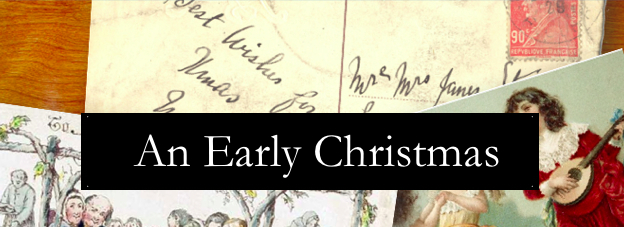On the Fourth Day of Early Christmas … the history of a famous carol!
Danny Johnson
So there are these carols that many of us have sung since grade school—well, at least back in the old days when we sang them in school—and they are evocative of Dickensian times and visualizations fostered by viewings of many versions of “A Christmas Carol” and Scrooge and Tiny Tim, et al.; of course we didn’t really wonder about the true beginnings of these songs. (By the way, here’s a first: I’ve got a special gift for the first person to correctly name my first solo in school; it was in the 6th-grade Christmas concert. There are those who think I’ve gone downhill since then…)
“Good Christian Men, Rejoice” began as In dulce jubilo, which was taught to the mystic Seuse or Suso by angels in the 14th century. It went through some variations in the 15th and 16th centuries before Michael Praetorius made several settings of it as did many of the other leading composers. The harmonization that is commonly used in hymnals is John Stainer’s (19th century) based on the tune that is found in the Piae Cantiones (Finland, 1582), which happens to be the same source for the Gaudete from Day 3 of our journal.
And why am I mentioning this at all? Because TEMP performs a unique arrangement of In dulci jubilo that no one else anywhere does—as far as I know! Two different imitative settings by Michael Praetorius, one instrumental and one vocal—both are virtuosic—followed by a verse by him in chorale style for four voices and then one for three voices and instruments set by Buxtehude. The fourth verse is a massive 8-voice setting by Hieronymus Praetorius with rich textures and subtle harmonic surprises; we then return to the graceful Buxtehude setting for the ‘coda.' Here is an excerpt from the 8-voice setting from our CD Swete was the Songe.
And then Tiny Tim says, “God bless us, everyone!” Ok, not really. After that 7 minutes of musical calisthenics, we move to the Lowlands for…well, we’ll talk about that tomorrow!






